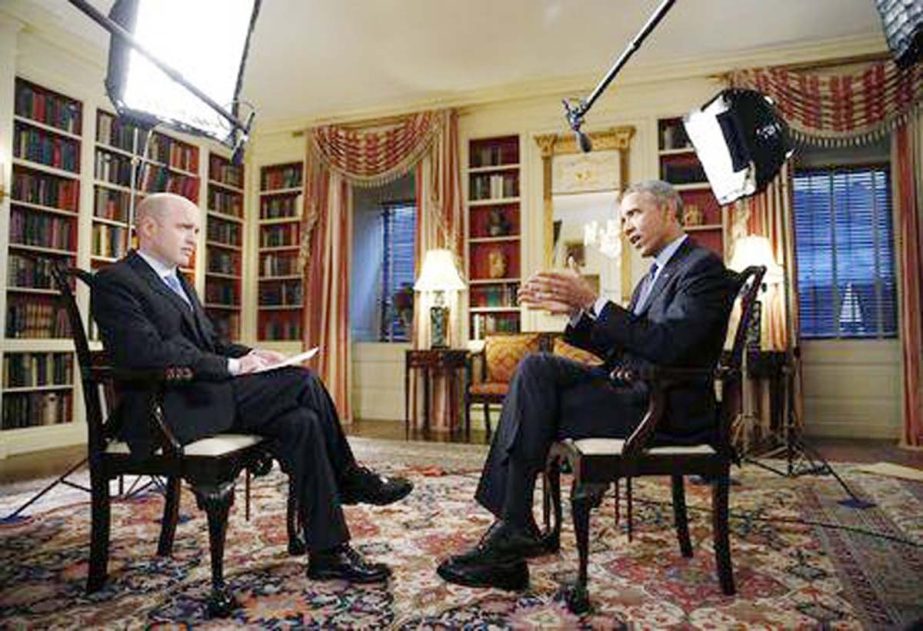
Reuters, Washington :
Iran must commit to a verifiable freeze of at least 10 years on sensitive nuclear activity for a landmark atomic deal to be reached, but the odds are still against sealing a final agreement, U.S. President Barack Obama told Reuters on Monday.
Interviewed at the White House, Obama moved to dial back tensions over Israeli Prime Minister Benjamin Netanyahu’s planned speech to Congress on Tuesday opposing the Iran deal, saying it was a distraction that would not be “permanently destructive” to U.S. Israeli ties.
But he strongly criticized Netanyahu’s stance and stressed there was a “substantial disagreement” between them over how to achieve their shared goal of preventing Israel’s arch foe from acquiring nuclear weapons.
Talks between major powers and Iran to restrict Tehran’s nuclear capabilities in exchange for an easing of sanctions have reached a critical stage ahead of an end of March deadline for a framework deal and a June 30 date for a final agreement.
Obama’s comment about the time frame for a freeze represents one of the U.S. government’s strongest signals yet of its red line for a successful deal.
“If, in fact, Iran is willing to agree to double-digit years of keeping their program where it is right now and, in fact, rolling back elements of it that currently exist … if we’ve got that, and we’ve got a way of verifying that, there’s no other steps we can take that would give us such assurance that they don’t have a nuclear weapon,” he said.
The U.S. goal is to make sure “there’s at least a year between us seeing them try to get a nuclear weapon and them actually being able to obtain one,” Obama said in the interview, carefully timed by the White House a day ahead of Netanyahu’s polarizing speech to Congress.
Obama’s robust defense of a possible deal with Iran comes as his administration faces criticism from some quarters that it is being too eager to complete a deal, at the risk of allowing Iran to eventually become a nuclear state.
The White House last week denied a report that the United States and Iran were exploring a possible 10-year deal that would initially freeze Iran’s nuclear program but gradually allow it to increase activities that could enable it to produce nuclear arms in the last years of the agreement.
In the interview, Obama again criticized a plan by Republicans and some Democrats in the U.S. Senate to impose additional sanctions on Iran if no deal is reached by June 30, saying it could undermine the delicate talks.
“I’m less concerned, frankly, with Prime Minster Netanyahu’s commentary than I’m with Congress taking actions that might undermine the talks before they’re completed.”
Despite recent progress in the talks, Obama suggested there had been little change in his assessment that the negotiations have less than a 50 percent chance of success.
“I would say that it is probably still more likely than not that Iran doesn’t get to ‘yes,’ but I think that, in fairness to them, they have been serious negotiators and they’ve got their own politics inside of Iran. It is more likely that we could get a deal now than perhaps three or five months ago,” he said.
An Iran nuclear deal would be a potential signature achievement for Obama whose foreign policy legacy is mixed with just two years left in office.
Seemingly intractable challenges, from Russian separatists in Ukraine to Islamic State militants in Syria, have overshadowed successes such as the killing of Osama bin Laden and the tentative opening up of relations with Cuba.

